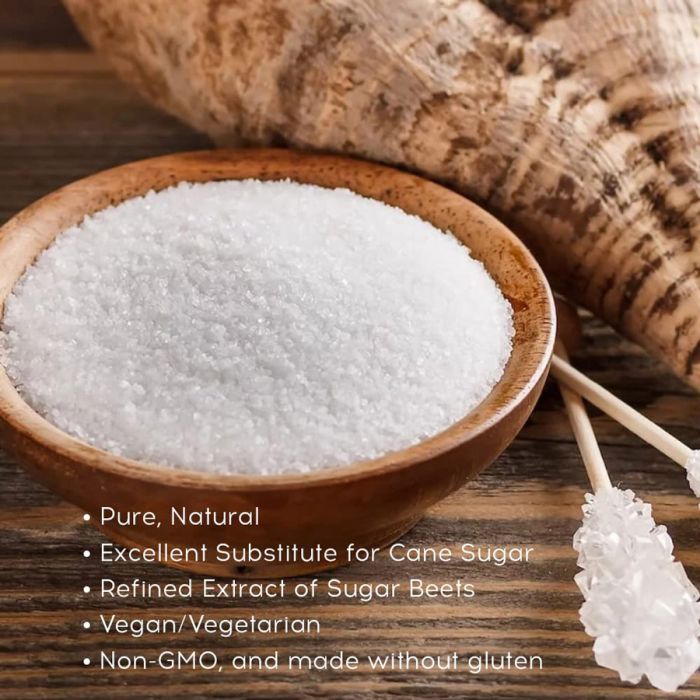Examining beet sugar vs cane sugar reveals distinctions in economic factors and availability.
Examining beet sugar vs cane sugar reveals distinctions in economic factors and availability.
Blog Article
Discover the Uses and Advantages of Beet Sugar Vs Cane Sugar in Your Daily Diet Regimen
Checking out the distinct top qualities of beet and cane sugar discloses more than just their sweetening capacities; it highlights their special effect on wellness and culinary arts. Beet sugar, recognized for its subtle flavor, is often preferred in delicate treats, whereas cane sugar, with its tip of molasses, adds splendor to robust recipes. Each type holds its very own nutritional account and glycemic ramifications, inviting a deeper understanding of their functions in a well balanced diet regimen and sustainable usage techniques.
Origin and Production Procedures of Beet and Cane Sugar

The distinctive environments and soil types needed for expanding sugar beets and sugarcane add to differences in their growing techniques and geographic circulation, affecting the economics and sustainability of their manufacturing. beet sugar vs cane sugar.
Nutritional Contrast Between Beet Sugar and Cane Sugar
Despite originating from various plants, beet sugar and cane sugar are nutritionally really similar, both mainly containing sucrose. Each supplies concerning 4 calories per gram, translating to roughly 16 calories per tsp. Structurally, both sugars are made up of roughly 99.95% sucrose, with marginal quantities of other compounds like dampness and trace minerals, which do not considerably change their dietary accounts.

Eventually, when choosing between beet sugar and cane sugar based upon dietary content alone, both deal the same benefits and disadvantages as they are basically kinds of the same molecule-- sucrose, supplying fast power without other nutrients.
Influence on Health And Wellness: Glycemic Index and Caloric Content
Exploring better right into the impacts of beet sugar and cane sugar on health and wellness, it is very important to consider their glycemic index and caloric web content. Both sugars are categorized as sucrose, which includes glucose and fructose. This make-up leads them to have a comparable effect on blood sugar degrees. The glycemic index (GI) of both beet and cane sugar is around 65, categorizing them as high-GI foods, which can trigger quick spikes in blood sugar degrees. This is an important facet for people handling diabetic issues or those trying to maintain official website their power levels throughout the day.
Each kind of sugar includes around 4 calories per gram, making their calorie material matching. For those checking caloric consumption, particularly when managing weight or metabolic wellness problems, understanding this equivalence is essential (beet sugar vs cane sugar). Nevertheless, too much consumption of any kind of high-calorie, high-GI food can add to wellness issues such as excessive weight, cardiovascular disease, and insulin resistance.
Environmental and Economic Considerations of Sugar Production
Beyond health effects, the production of beet and cane sugar likewise increases considerable ecological and financial problems. Sugar beet cultivation tends her comment is here to require cooler climates and has a reduced geographical footprint compared to sugar cane, which flourishes in tropical regions.
Additionally, making use of chemicals and fertilizers in both beet and cane sugar cultivation can result in soil deterioration and contamination, additional influencing biodiversity and regional water bodies (beet sugar vs cane sugar). The option in between growing sugar beet or cane frequently hinges on local ecological problems and financial aspects, making the sustainability of sugar manufacturing a complex issue
Culinary Applications and Taste Distinctions
While the ecological and economic facets of sugar production are indeed substantial, the option between beet and cane sugar likewise influences cooking applications and flavor accounts. Beet sugar, obtained from the sugar beet plant, is known for its extremely neutral preference.
Walking cane sugar, extracted from sugarcane, typically preserves molasses traces, which present a distinctive richness and depth. The minor variant in dampness web content in between beet and cane sugar can affect the texture and consistency of dishes, making cane sugar a favored option for details dishes that profit from its one-of-a-kind residential or commercial properties.

Conclusion
To conclude, both beet and cane sugar have distinct origins and production processes, providing similar nutritional profiles with slight differences in sodium content and flavor. While their influence on health, navigate to these guys specifically concerning glycemic index and calories, is comparable, the choice in between them commonly steams down to ecological, financial aspects, and details cooking requirements. Understanding these aspects can lead customers in making notified decisions that align with their wellness objectives and flavor choices.
Report this page